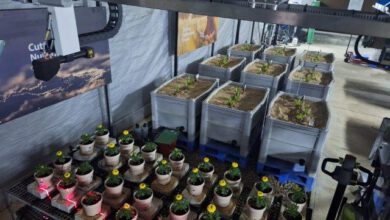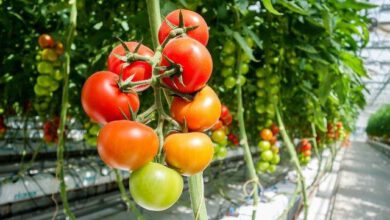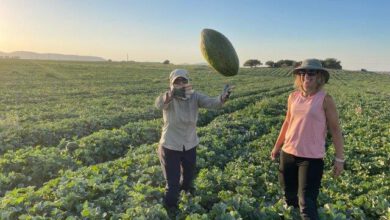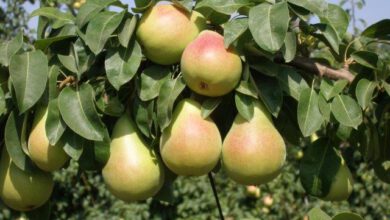Extending Plants life by using Cytokinin
An accidental discovery could let plants survive even in absence of water
David Shamah
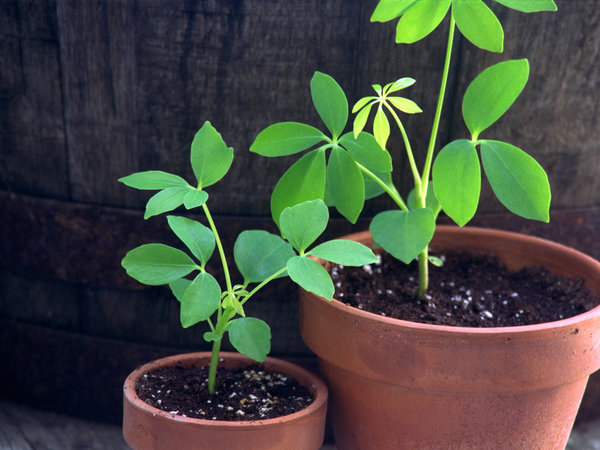

Will crop loss due to drought become a thing of the past? Professor Shimon Gepstein, a Technion professor and president of Kinneret College in northern Israel, thinks it might. By adding some “youth hormone,” his team developed plants that essentially put themselves into a state of hibernation when they weren’t getting watered and halted their aging/wilting processuntil they started getting water again.
“They gointo a ‘frozen’ state when they do not get water for a while, and return to full development when the water flow resumes,” said Geptstein. “There is no damage to the plant.”
The “hibernation” effect was actually a bonus result of research the team was doing on extending plant longevity. Scientists have shown in the past that increasing cytokinin levels can lengthen plant life, and Gepstein’s team was studying to what extent this was true in tobacco plants (scientists often use tobacco plants for genetic modification studies because they have a large biomass and grow quickly).
That partof the experiment, he said, was a resounding success. By adding cytokinins on a timed basis, “we created a loop that worked like a thermostat. When cytokinin levels went down, an internal plant mechanism raised the level of hormones that anticipated the plant’s aging,” with all its attendant weakening of growing power. Adding the cytokinins slowed down that mechanism, and the plant lived longer.
“The result is that we developed a plant that lived more than twice as long as a standard plant,“ said Geptsein. “The normal life cycle of a tobacco plant is four months, but our plant continued to live eight months or more, during which time it continued to bear flowers and fruits, after the standard plant has long since yellowed and died.”
The cytokinins also seemed to have a positive effect on the plant’s produce even after it had been harvested. “We found that the leaves of the normal plant yellowed and decayed after seven days, while the leaves from our modified plant remained green for 21 days.”
Encouraging results indeed. But cytokinins had another pleasant surprise for Gepstein. After the experiment, the team left the modified plants in the corner of a lab, assuming they would wither and die. Tobacco plants require watering every two to three days — but weeks later, these cytokinin-strengthened plants were still green and fresh.
While there had been evidence for cytokinin’s ability to extend plant life, “there were no experiments or documentation that indicated that they had an influence on a plant’s ability to withstand drought,” said Gepstein. “We decided to conduct a controlled experiment, comparing normal plants and generically modified plants, and stopped watering them for three weeks.”
That was enough time to kill off the normal plants – in most cases, the watering process did not revive them – but the cytokinin-laced plants survived, and resumed their growth process with no signs of stress or lowering of cytokinin levels. And, the experiment showed, the rejuvenated plants were able to grow with less water than the normal ones — as much as two-thirds less.
The implications of this discovery for Israel and other semi-arid regions of the worldis nothing short of history-making, said Gepstein.
“Wheat, for example, is planted in places like the Negev in the winter, but does not grow if rains do not come quickly after the seeds germinate,” he noted. With the seeds in the ground, the land cannot be replanted, and when such crops do grow, they are often unusable. This technology, he said, could keep them alive long enough to ensure a healthy crop.
The next step, said Gepstein, is to expand the range of plants to be tested.The platform was invented by Gepstein and his wife Amira (also of the Technion), along with Dr. Eduardo Blumwald of the University of California, Davis, and has been licensed for marketing in China to California-based Arcadia Biosciences, which recently obtained a patent in China for the plant longevity process. Gepstein said that there had been a great deal of interest in the “hibernation” benefits of the cytokinin-enrichment system they have developed.
The Times of Israel 29/8/13

